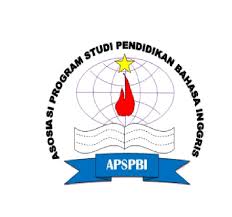A Hermeneutical Study of Using Mobile Phone in 4.0 in Writing Skills
DOI:
https://doi.org/10.22515/ele-reviews.v1i1.3588Keywords:
writing skill, hermeneutical study, mobile phone, 4.0 eraAbstract
Mobile phones become an affordable device in our lives since it is ubiquitous and the function is now not only for communication but also beyond that. This study aims to give the readers more insight into the use of a mobile phone in writing skills by using a hermeneutical approach. Participants were undergraduate students at age 18-20 (N=16). The descriptive analysis results reveal that a significant number of students notice that writing is considered the most challenging skill since they have to organize all aspects to produce good writing. Thus, a hermeneutical approach is needed to examine their difficulties in writing skills.
Downloads
References
Chan, N. N., Walker-Gleaves, A., & Remedios, R. (2013, June 16-19). Ubiquitous learning: The lived experience of students learning with smartphones [Session #2: Innovative online learning environments]. Sixth Conference of MIT’s Learning International Networks Consortium (LINC), Cambridge, Massachusetts.
Chan, N. N., Walker, C., & Gleaves, A. (2015). An exploration of students’ lived experiences of using smartphones in diverse learning contexts using a hermeneutic phenomenological approach. Computers and Education, 82, 96-106. https://doi.org/10.1016/j.compedu.2014.11.001
Chinnery, G. M. (2006). Emerging technologies: Going to the MALL: Mobile assisted language learning. Language Learning & Technology, 10(1), 9-16.
Halder, I., Halder, S., & Guha, A. (2015). Undergraduate student's use of mobile phones: Exploring the use of advanced technological aids for educational purpose. Journal of Media and Communication Studies, 7(4), 81-87. https://doi.org/10.5897/JMCS2014.0418
Harmer, J. (2004). How to teach writing. Longman.
Lubis, A. (2016). Filsafat ilmu klasik hingga kontemporer. PT. RajaGrafindo Persada.
Muyinda, P. B., Mugisa, E., & Lynch, K. (2007). M-learning: The educational use of mobile communication devices (book chapter). Makerere University.
Reinders, H. (2010). Towards a classroom pedagogy for learner autonomy: A framework of independent language learning skills. Australian Journal of Teacher Education, 35(5), 40–55. https://doi.org/10.14221/ajte.2010v35n5.4
Shalbag, R. A. (2014). Close analysis: An activity for using mobile phones in teaching ungraded writing tasks for university students. In Pixel (Ed.), Proceedings of International Conference The Future of Education 4th Edition (pp. 392-396). libreriauniversitaria. it Edizioni.
Siddique, M., & Madhawa Nair, S. (2015). The effectiveness of using mobile phone in enhancing writing skills: Teacher’s and students’ reflections. Australian Journal of Basic and Applied Sciences, 9(37 S), 390-396.
Sultana, M., & Zaki, S. (2015). Proposing Project Based Learning as an alternative to traditional ELT pedagogy at public colleges in Pakistan. International Journal for Lesson and Learning Studies, 4(2), 155–173. https://doi.org/10.1108/IJLLS-09-2013-0049
Traxler, J., & Kukulska-Hulme, A. (2005). Mobile learning: A handbook for educators and trainers. Routledge.
Downloads
Published
How to Cite
Issue
Section
Citation Check
License
Copyright (c) 2021 Dewi Zulaiha, Yunika Triana

This work is licensed under a Creative Commons Attribution-NonCommercial 4.0 International License.
Authors retain copyright and grant the journal right of first publication with the work simultaneously licensed under a Creative Commons Attribution License that allows others to share the work with an acknowledgement of the work's authorship and initial publication in this journal.
This ejournal system and its contents are licensed under
a Creative Commons Attribution-NonCommercial 4.0 International License








